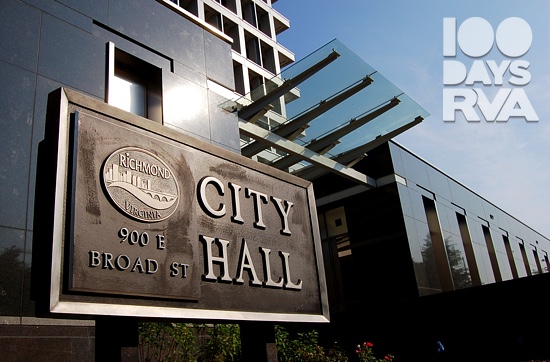Day #091: Build a stronger class of civil servants
A government is only as good as its civil servants.

Inspired by Michael Bierut’s 100 Day Project, 100 Days to a Better RVA strives to introduce and investigate unique ideas to improving the city of Richmond. View the entire project here and the intro here.
- Idea: Aggressively pursue young talent for civil service, pay city council members full-time salaries, and change the signature requirements required to run for office.
- Difficulty: 2 — The most difficult change would be increasing City Council salaries which requires General Assembly approval.
Companies are only as strong as the quality of their employees. The same idea holds true for government. Virginia and Richmond will never be able to pay salaries that compete with Google or Goldman Sachs, but Richmond should aggressively go after young talent, pay City Council full-time salaries, and lower barriers to running for office.
Never waste a crisis
Some talent is naturally attracted to civil service for emotional and intellectual reasons, but government will still ultimately get what it pays–or does not pay–for.
In the wake of the Great Recession, the Federal Government was faced with unbelievably low borrowing rates and a labor market stuffed with unemployed talent. Instead of bolstering demand through government spending and hiring an entire new generation of civil servants, our leaders picked the absolute worst time to suddenly become debt conscious.
Richmond and Virginia have stricter budget requirements, but government wasted an incredible opportunity in the wake of the Great Recession. Fortunately, borrowing rates are incredibly low and inflation is well below its 2% target. The bottom line: money is cheap, labor markets are still loose, and now is the time to try and hire career civil servants.
Richmond should start a program that helps pay off college debt if new hires stay for five years. If they leave early, they must pay back the entire amount. This would help attract young talent while mitigating some of the hiring costs if they leave early.
In a talk at the Institute for New Economic Thinking, former Treasury Secretary Larry Summers

I am a lot more worried about bequeathing children a starved public sector that no longer functions because of attrition of all the most able civil servants than I am bequeathing them paper debt that’s accumulating interest at less than 1% in real terms.Larry Summers
Recently, this has taken on more importance than ever because of demographics. Around 10,000 baby boomers reach retirement age every day, and it is expected that 600,000 federal employees will be eligible for retirement by September 2017.

This will leave the government with bigger problems caused by an aging population combined with reduced institutional knowledge.
City council
The nine members of Richmond’s City Council are “part-time” and are paid a base salary of $25,000 per year. The scale of the decisions being made and hours worked are not in line with part-time work or salaries.
At their retreat in September, the Council had a discussion about making the positions, and compensation associated with them, full-time. Changes in City Council salaries are made by the General Assembly,
This is not an indictment on any individual member of City Council, but full-time payment would attract more talent for two reasons: 1) higher salaries would compete with other areas of employment, and 2) it would enable individuals with less wealth to run for office.
Barriers to candidacy/vetting process
Few things show a failure of democratic ideals more than unopposed elections. In 2012, the races for mayor, two city council seats, and two school board seats were run unopposed.
Opposition, even from those who will lose by a landslide or who have extreme positions, promotes debate, forces issues, and provides for a much stronger vetting of candidates. 500 signatures, including 50 from each district, are required to run for mayor. In 2012, Michael K. Ryan Jr. collected 800 signatures including 80+ in each district. The signatures are required to be matched to addresses with registered voters and Ryan ultimately had too many discounted signatures to run on the ballot.
The signature process is important to limiting ballots, but in the case of Richmond, changes are needed. The rules should be changed so the top three signature-collecting candidates are put on the ballot. If Richmond is lucky enough to have more than three candidates collect the required signatures, then the ballot should be extended.
— ∮∮∮ —
Better civil servants means better decision making, more effective spending, and better governance. Richmond should aggressively go after young talent, pay City Council full-time salaries, and lower signature barriers to running for office.
Love this idea? Think it’s terrible? Have one that’s ten times better? Head over to the 100 Days to a Better RVA Facebook page and join in the conversation.
Photo by: taberandrew
-
Summers, who helped deregulate the derivatives market during the Clinton Administration, isn’t without fault in creating the conditions that caused the Great Recession, but he is clearly one of the greatest living minds. That talk is well worth 80 minutes if you want to better understand economics and the world.
-
Many deferred retirement because of the impact of The Great Recession. This means the rate of attrition could be even more rapid in the coming years.
-
Recommend this
on Facebook -

Report an error
-

Subscribe to our
Weekly Digest





There are no reader comments. Add yours.